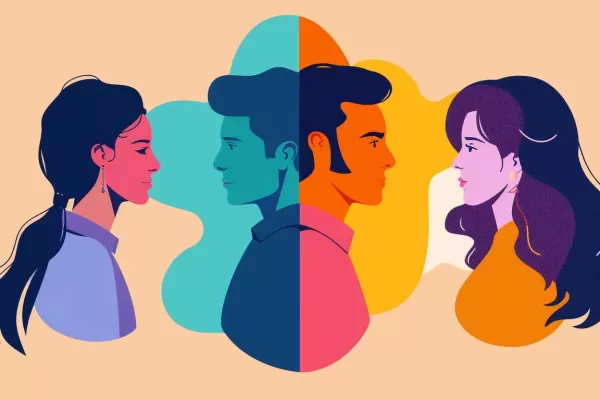Finding Strength in Identity: The Importance of Specialized LGBT Therapy
What is LGBT Therapy?
LGBT therapy is a specialized form of psychotherapy designed to address the unique challenges and needs of the lesbian, gay, bisexual, and transgender (LGBT) community.
Recognizing the distinct social, emotional, and psychological issues that LGBT individuals often face, this therapeutic approach provides a safe, affirming space where clients can explore their identities, express their feelings, and navigate the complexities of their personal and social lives. The importance of LGBT therapy cannot be overstated, as it plays a critical role in supporting mental health, promoting self-acceptance, and fostering overall well-being within the community.
Defining LGBT Therapy
LGBT therapy encompasses a range of psychotherapeutic methods specifically tailored to address the mental health needs of sexual and gender minorities. This type of therapy is grounded in an understanding of the socio-cultural context of LGBT lives, which includes facing societal prejudices, managing stigma, and dealing with the often complex processes of coming out or transitioning.
Therapists who specialize in LGBT issues are not only knowledgeable about general psychological principles but also possess a deep understanding of LGBT histories, cultures, and the common psychological impacts of minority stress. These professionals are trained to recognize and address the ways in which the experiences of discrimination and exclusion can affect the mental health of LGBT individuals. They work to create a therapeutic environment that affirms the client’s sexual orientation and gender identity, which is crucial for effective therapy.
This specialized approach ensures that therapy is relevant and sensitive to the needs of LGBT clients, helping them to deal with a wide array of issues from navigating relationship dynamics to resolving feelings of internalized homophobia or transphobia. Whether the client is seeking therapy for issues directly related to their LGBT identity or for more general mental health concerns, LGBT therapy can be tailored to offer the most supportive and effective treatment.
The Need for Specialized Therapy
The LGBT community faces unique challenges that necessitate specialized therapy. These range from deeply personal issues to systemic societal pressures, all of which can significantly impact mental health.
- Discrimination and Stigma: Many LGBT individuals encounter discrimination in various forms—whether at work, in healthcare settings, or in public spaces. This persistent stigma can lead to chronic stress and emotional strain.
- Coming Out: The process of coming out can be a critical, yet potentially stressful, period in an LGBT person’s life. It involves managing the risk of rejection from friends, family, and society, which can trigger a host of emotional conflicts.
- Gender Dysphoria: For transgender and non-binary individuals, gender dysphoria (the distress associated with a discrepancy between one’s gender identity and assigned sex at birth) can be particularly challenging. This issue often requires sensitive and knowledgeable therapeutic interventions.
- Identity Exploration: Navigating one’s sexual orientation or gender identity can be complex, often requiring guidance to explore and affirm one’s identity in a supportive environment.
Mental Health Disparities
LGBT individuals often experience higher rates of mental health issues than their heterosexual and cisgender peers. Statistics indicate increased instances of:
- Depression
- Anxiety
- Substance Abuse
These disparities underscore the critical need for therapists who are not only culturally competent but also specifically trained to address these issues within an LGBT context.
Goals and Approaches of LGBT Therapy
LGBT therapy aims to provide a supportive framework where individuals can address both universal and unique challenges. The goals of LGBT therapy often include, but are not limited to:
- Improving Self-Acceptance: Helping clients accept their sexual orientation and gender identity amidst internal and external pressures.
- Coping with Discrimination: Developing resilience against and strategies to cope with discrimination and social stigma.
- Resolving Identity Conflicts: Facilitating the process of exploration and acceptance of one’s identity, which can be crucial for overall mental health.
Therapeutic Approaches Used
To achieve these goals, LGBT therapists might employ a variety of therapeutic techniques, adapted to be affirming and effective for LGBT clients:
- Affirmative Therapy: This approach explicitly acknowledges and addresses the unique issues faced by LGBT individuals, promoting a positive view of LGBT identities as part of the therapeutic process.
- Cognitive-Behavioral Therapy (CBT): Adapted for LGBT clients to help identify and alter negative thought patterns and behaviors that arise from experiences specific to LGBT individuals.
- Psychoanalytic Techniques: These can explore the deep-seated origins of feelings related to one’s LGBT identity and how these affect current behaviors and relationships.
Through these tailored approaches, therapists can create a therapeutic path that respects and addresses the complex realities of LGBT lives, promoting healthier, more fulfilling lives.
Finding the Right Therapist
Choosing the right therapist is a crucial step in ensuring effective therapy, particularly for LGBT individuals who may face specific vulnerabilities. Here are some key factors to consider when searching for an LGBT-affirmative therapist:
Credentials and Training
- Specialized Training: Look for therapists who have specific training in LGBT issues. Many therapists will mention this training on their websites or in their biographies.
- Licensure: Ensure the therapist is licensed in their field—whether they are a psychologist, social worker, or marriage and family therapist, licensure is a guarantee of a professional standard of care.
Experience with LGBT Clients
- It’s important to choose a therapist who has experience working with LGBT clients. This experience can make a significant difference in the effectiveness of therapy.
Personal Qualities
- Empathy: The therapist should demonstrate a deep understanding and empathy for LGBT issues.
- Openness: Look for someone who is open and affirming, someone who creates a safe space where you can freely express your thoughts and emotions.
- Respect: Respect for your identity and experiences is non-negotiable in a therapeutic relationship.
Questions to Ask a Potential Therapist
- “Can you share your experience with LGBT clients?”
- “How do you approach topics like gender identity and sexual orientation in your sessions?”
- “What is your perspective on the unique challenges faced by the LGBT community?”
Resources for Finding a Qualified Therapist
- LGBTQ+ advocacy organizations: Many organizations offer directories of LGBT-friendly therapists.
- Referrals: Asking friends or community members for recommendations can also be a helpful way to find a trusted therapist.
- Online directories: Use filters for LGBT issues to find therapists who advertise their competency in this area.
How to Find the Right Therapist
Understanding the various aspects of LGBT therapy and recognizing the importance of finding the right therapist are crucial steps toward successful mental health care. By ensuring that your therapist not only understands but also respects and affirms your identity, you can create a foundation for meaningful and effective therapy.
If you or someone you know is struggling with issues related to sexual orientation or gender identity, don’t hesitate to seek help. Reach out to a qualified therapist who can provide the support and understanding necessary to navigate these challenges. Remember, everyone deserves to lead a happy and healthy life, fully embraced for who they are.

